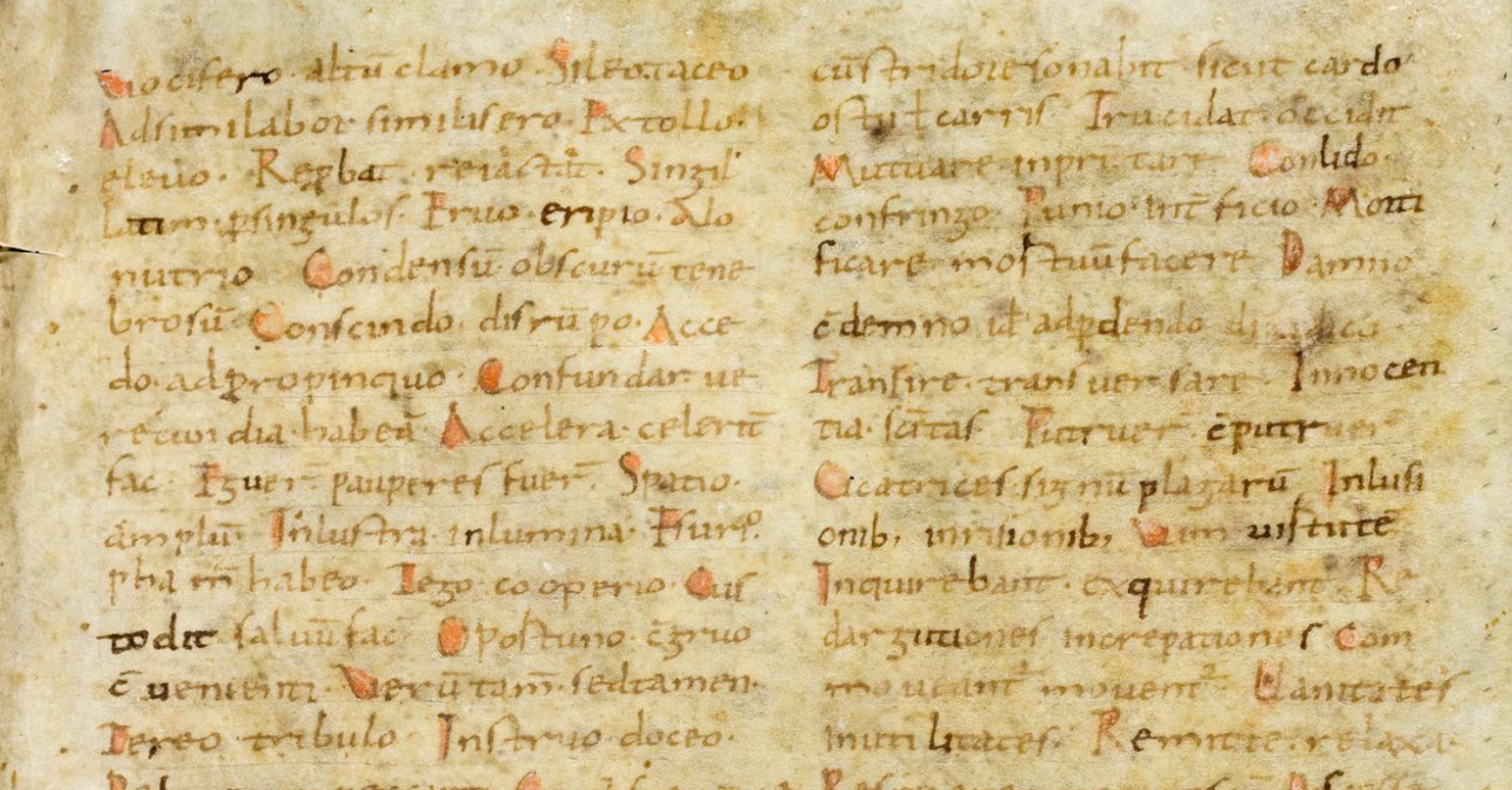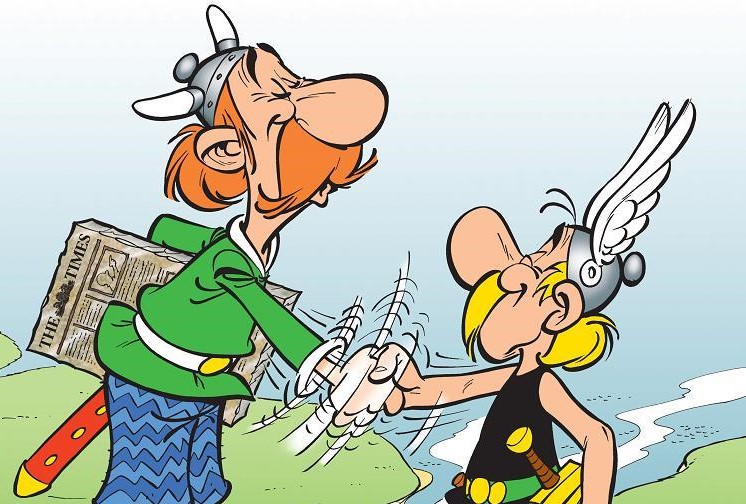Reading time: 5 minutes (With my apologies to subscribers for the second email, following an accidental premature publication) I’m very keen to share a fun linguistic adventure that I found myself on this week, as I dug down into the history of the humble English word street. It all began with a Patreon post byContinue reading “Streets Ahead: When Roman Roads Met Old English”
Tag Archives: Latin
The Reichenau Glossary and the Birth of French
Reading time: 10 minutes Now, I must confess, I have been somewhat preoccupied for the past two months, and so haven’t dedicated time to this site. The jump into the world of podcasting has taken a lot of effort, and yet the website hasn’t been far from my thoughts. So, for this October, I’m gettingContinue reading “The Reichenau Glossary and the Birth of French”
The Gaulish in English, in 10 Words
Reading time: 10-15 minutes To hear me speaking in my not-quite-best Latin, you can listen along here: IF you know a thing or two about Roman history, you will have come across the Gauls. They loom large in the story of Rome’s rise to dominance, both as their aggressor and as victims of their conquests.Continue reading “The Gaulish in English, in 10 Words”
What did British Latin sound like?
Reading time: 15 minutes Available again in audio format! Click here to hear this article read in my slightly rough, post-cold voice, with my sincere apologies to the Welsh language. THE TRANSITION from Roman Britain to Medieval Britain is a fascinating historical, archaeological and linguistic puzzle. The fifth, sixth and seventh centuries AD in BritainContinue reading “What did British Latin sound like?”
Bad Romance: An Introduction to the Appendix Probi
Reading Time: 10 minutes How exactly did we get from Latin to the many Romance languages of today? What changes happened to Latin that it should end up looking so different? These are the driving questions of Romance historical linguistics, the field of study that aims to investigate how French, Spanish, Catalan, Italian, Romanian andContinue reading “Bad Romance: An Introduction to the Appendix Probi”
Digging Old Irish
Reading time: 15-20 minuftes Old Irish has a bit of a bad reputation. This historical form of the Irish language, dated to between c. 600 AD and c. 900 AD, is a challenge for learners, even for those who already know some Modern Irish. Its systems of spelling, sounds, word order and grammar are veryContinue reading “Digging Old Irish”
The Almost Romance Languages
Reading time: 15-20 minutes If you like languages, you’ve probably heard the terms Romance and the Romance family. Although it started life as a name for the language of medieval France, Romance has come to be the umbrella term for a big group of modern tongues, including French, Spanish, Portuguese, Catalan, Italian and Romanian. TheContinue reading “The Almost Romance Languages”
Holy Linguists! Part II: Cyril and Methodius, Ælfric of Eynsham, Hildegard of Bingen
Reading time: 15-20 minutes So, continuing on a theme that nobody asked for but I love, here is the second part of my Holy Linguists! series of blog posts. Part I looked at three holy heavyweights from the Mediterranean world in the late antique era: Gregory of Nyssa, Jerome and Augustine. This month’s blog postContinue reading “Holy Linguists! Part II: Cyril and Methodius, Ælfric of Eynsham, Hildegard of Bingen”
Five Sound Changes That Make Italian Make More Sense
Reading time: 10-15 minutes As I write, it’s the 15th of September, and I have just, with a heavy heart, departed Italy. What a time, and what a place! Among its many delights, it was a particular pleasure to be reminded of how much I love the Italian language. I love to hear it, toContinue reading “Five Sound Changes That Make Italian Make More Sense”
An A-Z of the Languages and Loanwords of the English Lexicon – from Arabic to Zulu!
Reading time: 20-25 minutes Among language lovers and loathers alike, it’s well known that the modern lexicon of English is drawn from different sources. While a solid chunk of English vocabulary has a Germanic origin, much also comes from French, in a large part due to Duke William of Normandy and some battle that happenedContinue reading “An A-Z of the Languages and Loanwords of the English Lexicon – from Arabic to Zulu!”









